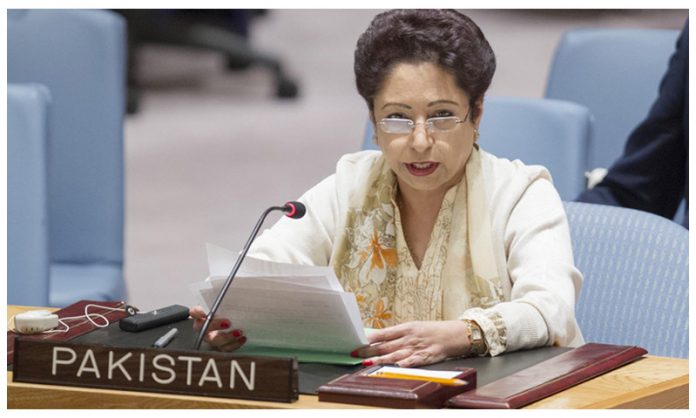
Reminding that civilians have become the principle objects of attack in armed conflicts, Pakistan has called for focusing on the root causes of decades-old international disputes like Kashmir and Palestine and their resolution in a bid to promote world peace and security.
“Gone are the days when the impact of armed conflicts on civilians was limited to collateral damage,” Ambassador Maleeha Lodhi, permanent representative of Pakistan to the United Nations, told the UN Security Council on Thursday.
“Targeted attacks, sexual violence, forced conscription and indiscriminate killings collectively paint an extremely bleak picture of the human costs of modern day armed conflict,” she said in an open debate on Protection of Civilians in Armed Conflict.
The Geneva Conventions for protection of civilians and respect for human life were being violated, and in some the perpetrators of such crimes were awarded honours by their military commands, the Pakistan envoy said, adding that, “these crimes continue to be perpetrated in Palestine and Indian occupied Jammu and Kashmir, two of the oldest disputes on the agenda of this Council.”
“Inaction by the Security Council in cases of foreign aggression and occupation produces situations where such crimes breed,” Ambassador Lodhi told the 15-member body.
As a result, civilian casualties continue to grow, requiring ever-greater need for humanitarian assistance and protection for people displaced by conflict, Ambassador Lodhi said.
In 2017, the UN recorded more than 26,000 civilian deaths in just six situations of armed conflict, with 128 million people in need of humanitarian assistance and protection.
In this context, she underlined that host countries bear the primary responsibility for protection of all civilians without discrimination. Violations could be mitigated by the consistent use of national and international judicial and non-judicial means for promoting compliance with the International Humanitarian Law, and that military training must include familiarization those laws.
“As one of the world’s leading troop contributors to UN Peacekeeping, blue helmets from Pakistan have contributed to many of its success stories in Africa, from Liberia to Sierra Leone,” Ambassador Lodhi said.
“Our well-trained and professional peacekeepers have protected civilians, provided them much-needed medical care and rebuilt their lives,” she added.
In conclusion, the Pakistani envoy underscored the need for preventing the outbreak of armed conflict to accomplish the goal of protection of civilians.
“Our collective efforts need to be geared towards that goal. Otherwise, we will be treating only the symptoms and not the cause.”




